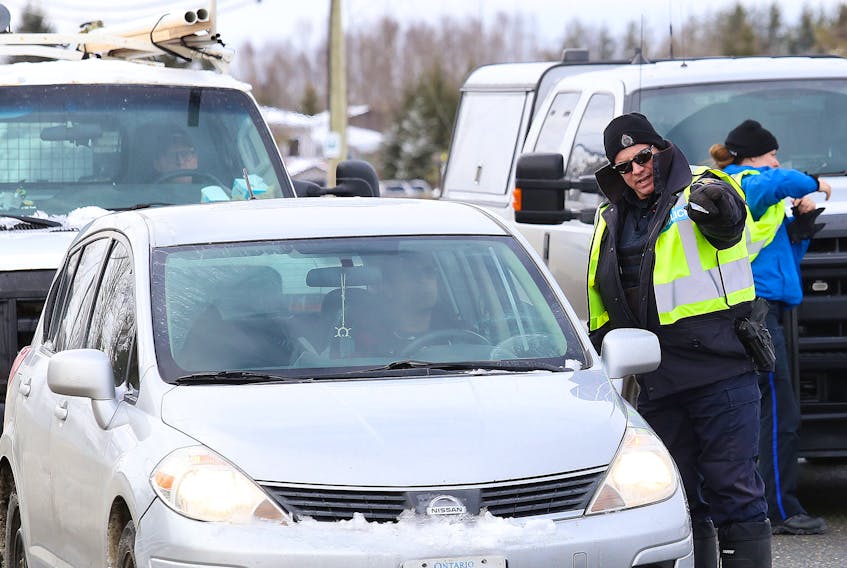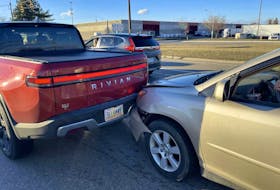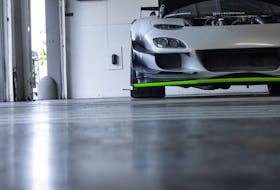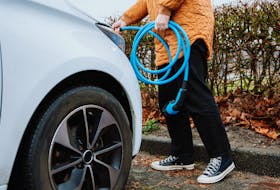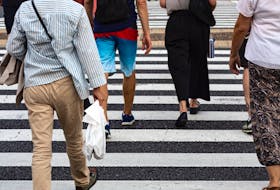Lorraine Sommerfeld
A viral video is making the rounds. Jesse Bright, a North Carolina lawyer (also an Uber driver) films himself at a police highway checkpoint while talking viewers through what is legal, what is not, and how to conduct yourself if you find yourself in the same situation.
He makes an important point right out of the gate. Sobriety checkpoints have been ruled unconstitutional in some American states, and in others there are statutes prohibiting them. The Constitution makes them generally legal in the U.S., but there are states that use their own laws to override that.
Our lawyer makes this clear and announces how states like North Carolina get around it: they call them licence checks. Instead of sniffing for impairment, they roadblock and check that drivers have a current licence, insurance and registration. Any suspicion or admission of possible impairment changes the whole stop, however. They’re fishing.
The video is unnerving. Bright drops his window a couple of inches, his papers in hand. The officer asks him to put the window down more. The lawyer doesn’t, and says nothing but shakes his head as the camera captures what seems to be a growing standoff. The lawyer hands his papers through the window, all that he is required to do by law. The officer asks him a couple of questions. The lawyer says nothing. I get tense just watching it.
The questions Bright ignores are familiar if you’ve ever done a sobriety check or been pulled over. “Where have you been?” is checking for admission of possibly drinking. Bright says nothing. “You still live in the Raleigh area?” sounds conversational, almost engaging. Bright stares ahead. The officer leaves for a moment, hands back the papers through the slightly opened window, and sends Bright on his way.
What are your rights in Canada? Can you do what Jesse Bright did (I would be incapable of not responding) and if you do, what can you expect? Sergeant Murray Campbell with Toronto Police Services Traffic Service tackles the sobriety checkpoint conditions first.
“R.I.D.E. stops . . . do not target specific offenders, but check all for the specific offences of impairment by alcohol or drugs. Prior to December 2018, officers would require a reasonable suspicion that a driver [may be impaired] to screen the driver.”
The second you roll down the window at a sobriety checkpoint, the officer is checking many things simultaneously, but they are confined to establishing impairment. Does the driver smell of alcohol? Does the driver exhibit signs of impairment, like red, glassy eyes, slurring, confusion, etc.? They are scanning the interior of the car for anything that shouldn’t be there, like open liquor or illegal drugs. While that bong on your passenger seat could lead to a further search, police can’t tell you to open your trunk on a hunch.
Sometimes someone will refuse to open their window and refuse to speak. It’s a bad road to start down, but you can do it if you want. Usually, I’m told, it’s people who have been watching too many American YouTube videos and are deciding to apply Alabama laws to Canada. It will draw more officers and might add an obstruction charge to your heap of trouble. Some police will let you call Legal Aid or your lawyer from your car while you’re choosing this hill to die on. Some.
A R.I.D.E. stop is a wide net looking for impaired drivers, but its scope is narrow. You may have a burned-out headlight or a dragging muffler, but the original officer you speak to can’t fine you for that. The next cop car in line, however, can. Separate from the sobriety check.
You must produce a valid licence, registration and insurance if asked. You have to answer questions about whether you have consumed alcohol (or other impairing drugs) and how much. If an officer asks you what you think about the Raptors or the Oilers, you don’t have to answer.
Here’s the thing, though. Prior to December 2018, police had to have reasonable suspicion that a driver was impaired in order to administer sobriety tests, either roadside or at the station. Now we have Mandatory Alcohol Screening (MAS), which means they don’t need to rely on suspicion, reasonable or otherwise.”
A demand for a roadside screening test can be made on any driver, at any time, as long as it is done fairly and only for the purpose of identifying drivers that have consumed alcohol,” says Campbell. The constitutionality of MAS is being tested in courts across the country.
At a checkpoint, the first thing I am always asked is “How are you folks this evening?” I don’t have to answer that. Why wouldn’t I?
Before the law change, if they thought you were impaired and you said you’d had a drink earlier, they could test you. If they thought you were impaired and you said you didn’t drink anything, they could test you if they suspected otherwise.
Now they can test at will. Your interaction with the officer starts with the first question. I’m fine this evening, officer, thanks.
According to Campbell, failure to comply with a sobriety test “results in a charge of Refuse or Fail to Provide, which carry the same penalties as if the driver had failed (charges, licence suspension, vehicle impoundment, etc.) Refuse or Fail to Provide is a highly financial penalty in court now.”
In Canada, apart from sobriety checkpoints, police can pull over anyone. While details vary between jurisdictions, besides traffic infractions, I can be pulled over and checked for licence, registration and insurance, as well as the mechanical fitness of my vehicle. Most of us know if we’ve been speeding or run a light; a prickly, but important, topic for another voice is the fact I don’t get pulled over randomly, but that many people do.
The Bright video is a how-to in knowing your rights. It makes its point, but what if it had been my snarky kid in that seat instead of a lawyer, filming it all? I refuse to fall into the ‘if you’ve done nothing wrong, you have nothing to worry about’ camp — that’s delusional. But know your rights based on where you live or visit, not a random sampling on the internet.
Copyright Postmedia Network, 2020

